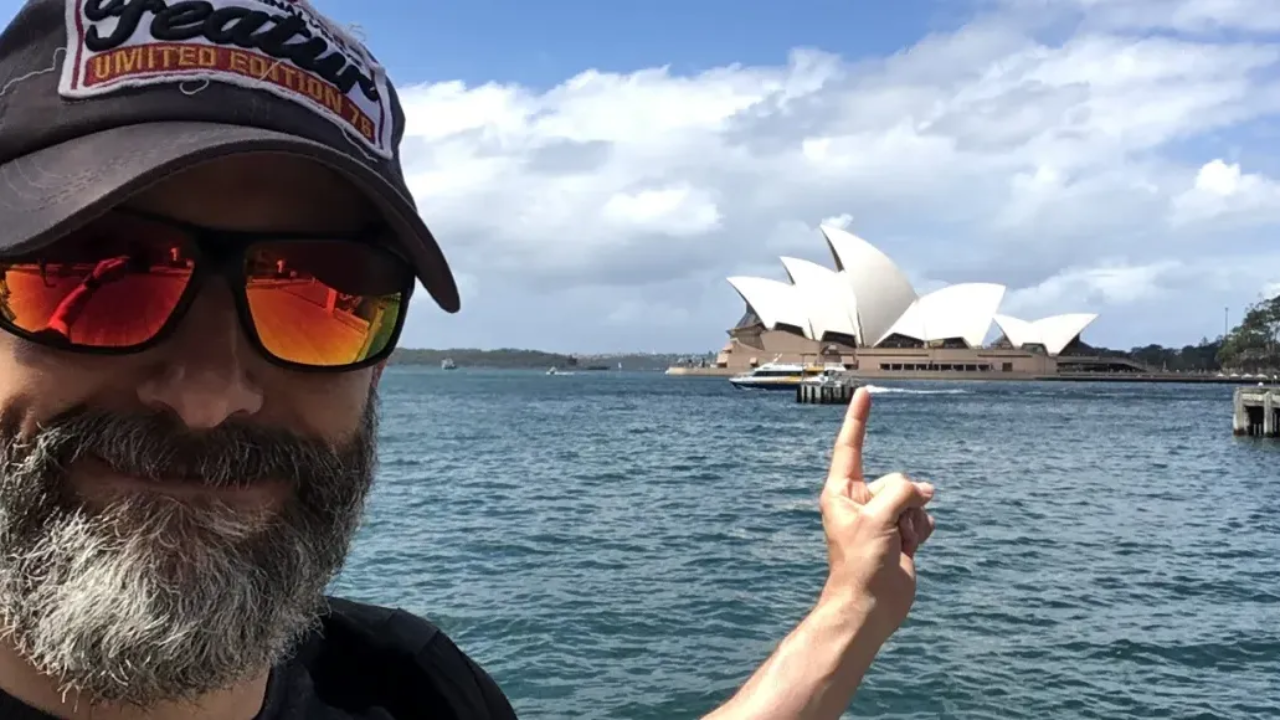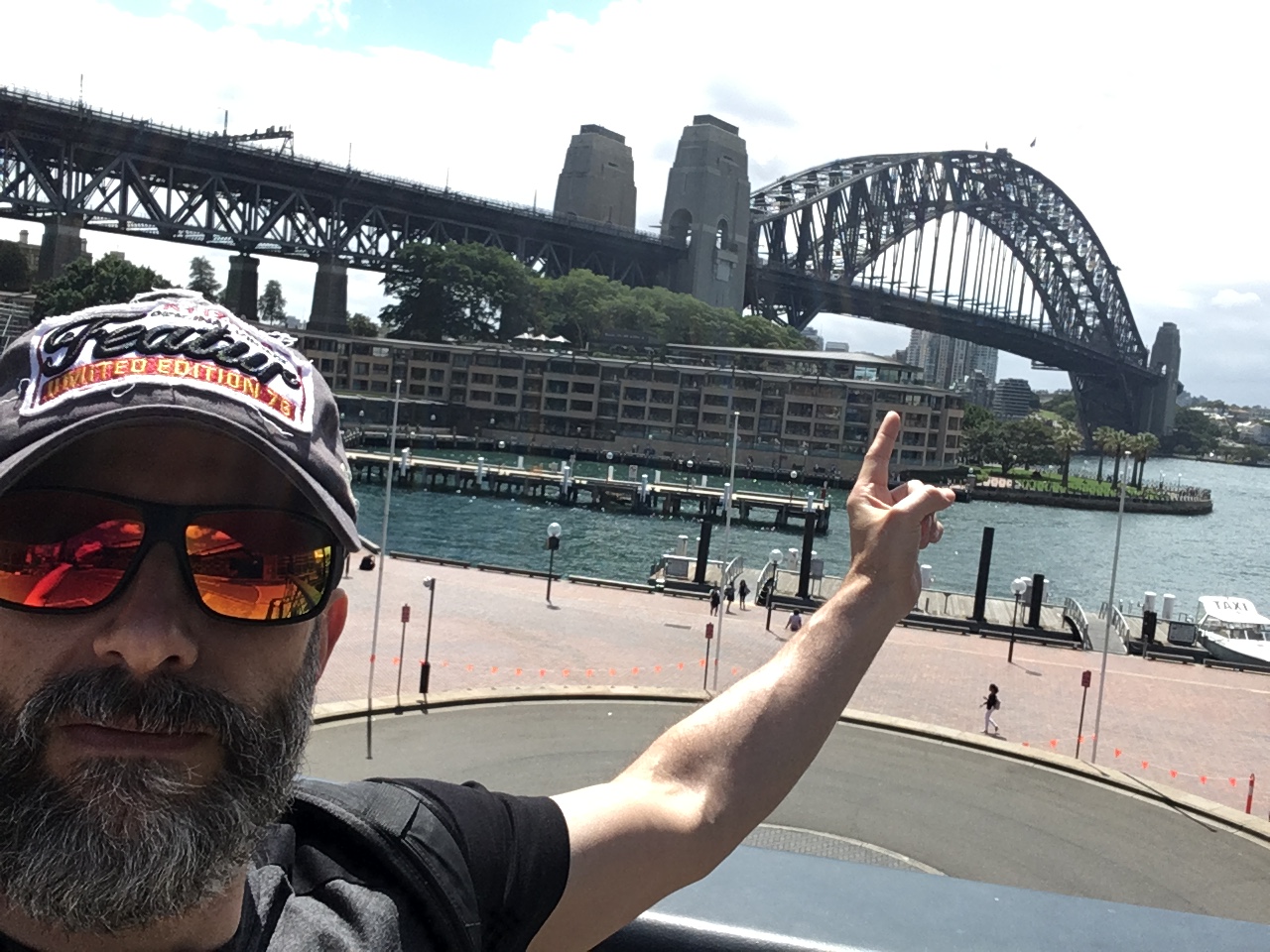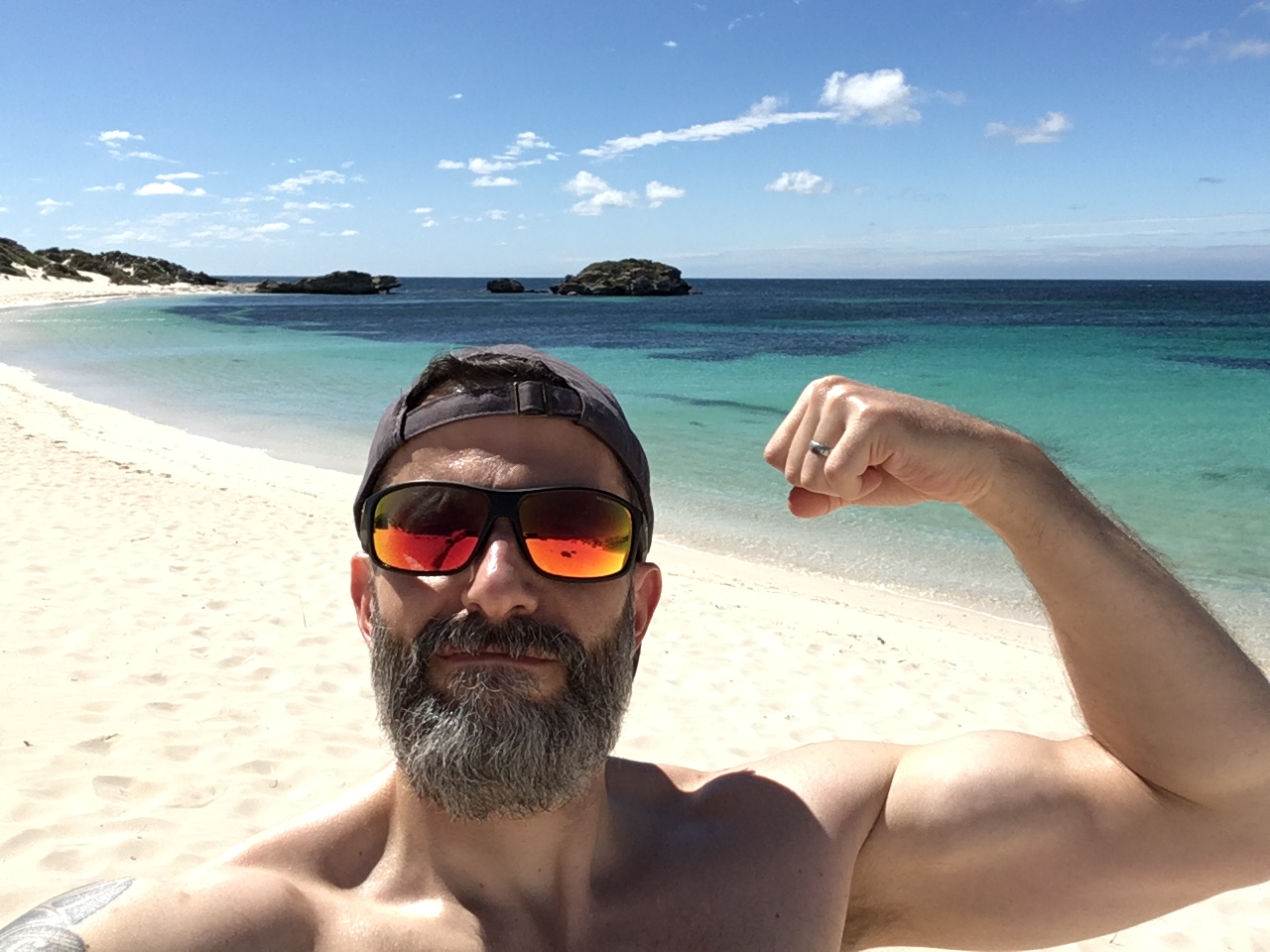Feelings From Down Under!
Mar 11, 2018
So I’ve just finished my tour of Australia where I have been teaching my shoulder course in Perth, Melbourne, Sydney and finally Brisbane, you can see more of this by following the #ShoulderComplex on social media. It’s been a hectic, busy, but really enjoyable few weeks and I want to thank everyone who helped organise and came to any of the courses, especially after my original visits were cancelled in some rather dubious circumstances.
Over these last few weeks, I have met over 200 skilled, passionate, dedicated, but often frustrated therapists who find themselves with many of the same issues and concerns that I have as a physio. So as I sit in the airport departure lounge sipping a G&T I thought I would summarise the most common discussions I have had since I have been ‘down under’.
Patient expectations
One of the most common discussions I have had is how do I deal with the patients who want manual therapy, taping, or electrotherapy as a physio who now doesn't use them. Well for me this is quite simple, I pass on my professional views, opinions, and experiences to patients that these treatments are low value in that they only offer small short-term effects via unknown and uncertain mechanisms, and usually they are NOT worth the effort, time, cost, and distraction away from what we should be doing… usually moving!
However, many tell me that they still struggle to get patients to accept this so what else can they do? Well too put this as simply and honestly as I can... nothing. If a patient is not happy to accept your professional advice and opinions then you are at an impasse, and what you decide to do going forward is either relent and do what the patients want, or continue to stand by your decision.

I do understand that in private healthcare patients have a choice and that if they don’t get what they want then they tend to go and find someone who will. However, I mention on my courses that I always ask my patients at the end of my history taking what they think they need to help them get better. Many patients tell me they don’t know, and I find these patients are far more receptive to the advice and guidance I give.
Those who tell me they expect or want manual therapy, tape, etc are not so accepting and so I tend to spend some time exploring their understanding of these interventions and their motives of why they want them. Often I find they are grossly misinformed and when I give an alternative explanation some accept it, some don't, so be it, we can't help everyone we see!
I do know that patient expectations often govern and even predict outcomes in healthcare so they have to be considered and taken into account, but healthcare professionals are NOT prostitutes just doing whatever patients want when they want for payment. Often what patients want isn’t what they need, and using their satisfaction as an outcome measure is a really shitty way to measure and reward success in healthcare.
Managing expectations doesn't mean meeting them
The biggest barrier to promoting an evidenced-based, self-management, self-efficacy and active treatment approach in our profession is that it isn’t rewarded, financially or professionally. Many therapists due to peer pressure and inadequacy issues rate their success as a clinician on how many modalities they can learn and apply to patients, and unfortunately, insurance companies reward them for using them on patients.
Over-diagnosis, over pathologising, and over-treatment are huge problems in our profession and healthcare in general, many things that hurt don’t need further investigations or treatment. Instead, many things that hurt simply need reassurance that it's ok and safe, some advice on how long it will take, and what they can do to help. But again the main reason and barrier this doesn’t happen often is that financial incentives don’t reward clinicians not to treat or intervene.

Could you imagine how healthcare practices and treatments would change if insurance companies gave clinicians bonuses NOT to treat for certain conditions, or rewards if they get patients back to work, sport, or other tasks within certain time frames? How many low-value treatments would be abandoned and dropped like an ugly first date, and how much would quality life be improved and money saved. I know I am dreaming and many will say this is just silly wishful thinking, but I am hopeful that this could be the way forward one day.
Be uncertain
The next discussion I had a lot was how do I treat patients when I don’t know what or why they have pain. Well, that’s simple, I just trust in the power of natural history, regression to the mean, contextual effects, and of course exercise.
Most of the patients I see in pain I have very little idea why they have pain, and I say this often to other clinicians and the patient and many think I am a shit physio because of this. I don’t care, I just know that pain is weird, I know that evidence tells me that many of our objective tests and scans lack reliability, validity, and specificity.
I know anyone who is certain of a diagnosis doesn’t understand pain or the evidence base well enough. The only thing I am confident about is being uncertain of why things hurt and why they get better or don’t!
However, just because you don’t know what or why something is hurting doesn’t mean you can’t help patients. Just because we often can't identify structures that cause pain in our patients, doesn't mean we can't try to identify the triggers that do, either mechanical, psychological, or environmental.
So for me after we have done our checks and ensured as best as we can that there is nothing serious or sinister, rather than wasting time hunting for a structural diagnosis I think we should be focusing on what the patient's problems and issues are and what are the triggers for these, and then try to work on trying to improve and help these factors.
I don’t need to know if a patients shoulder pain is cuff, bursa, labral, or joint related. I just need to know what the patient is unable to do, and when how they get their pain or disability and then look to try and change this. However, this doesn’t mean I have to reduce their pain immediately either.
Resilience not reduction
The other conversation I had a lot was about my views on pain. As a physio I feel my primary role is NOT the immediate reduction of pain. My role is in offering reassurance to patients that their pain is nothing to be feared or alarmed about, that it won’t last forever, and that it is to be endured and tolerated. I tell many patients that they don’t have to avoid painful movements or tasks, they don’t have to stop doing things that hurt, and that they don’t have to be pain-free all the time.

In my experience and opinion society as a whole is becoming less tolerant to pain. Modern lifestyles, technology, diet, lack of exercise are all making us as a species less able to cope with painful experiences. Things just hurt from time to time and many need to understand and accept this better, and its healthcare professionals responsibility to educate and reassure people about this, but they do a really shitty job at it.
The main reason that we see increasing catastrophizing, fear, anxiety about pain in our patients is due to many healthcare professionals confusing and scaring the shit out of patients. More clinicians need to stop over diagnosing, over pathologising, and using overly complicated language, terms, diagnosis, and interventions, and instead be better at confidently reassuring patients that all is ok and they can ‘crack on’
Summary
So there you go some brief airport lounge, G&T fuelled reflections of the most common conversations I had whilst down under. Once again I would like to thank everyone who came to hear me talk, rant, rave around shoulder pain, and healthcare. Thanks for all your kind and constructive feedback, and I would like to give a special thanks to the local hosts Troy Gardiner in Perth, Elaine Stevenson and Tim Trevail in Melbourne, Aaron Lewis and Craig Gregory in Sydney, and Yanek Pearce in Perth.
I also want to say to those other shoulder gurus and academic dinosaurs who felt that threatened and insecure to try and meddle and scupper my original visit to Australia who I know are reading this… yes, you are, I know you are… best of luck next time ya drongos!!! Low interest... my arse!!!
As always thanks for reading
Adam
Stay connected with new blogs and updates!
Join my mailing list to receive the latest blogs and updates.
Don't worry, your information will not be shared.
I hate SPAM, so I promise I will never sell your information to any third party trying to sell you laser guided acupuncture needles or some other BS.

